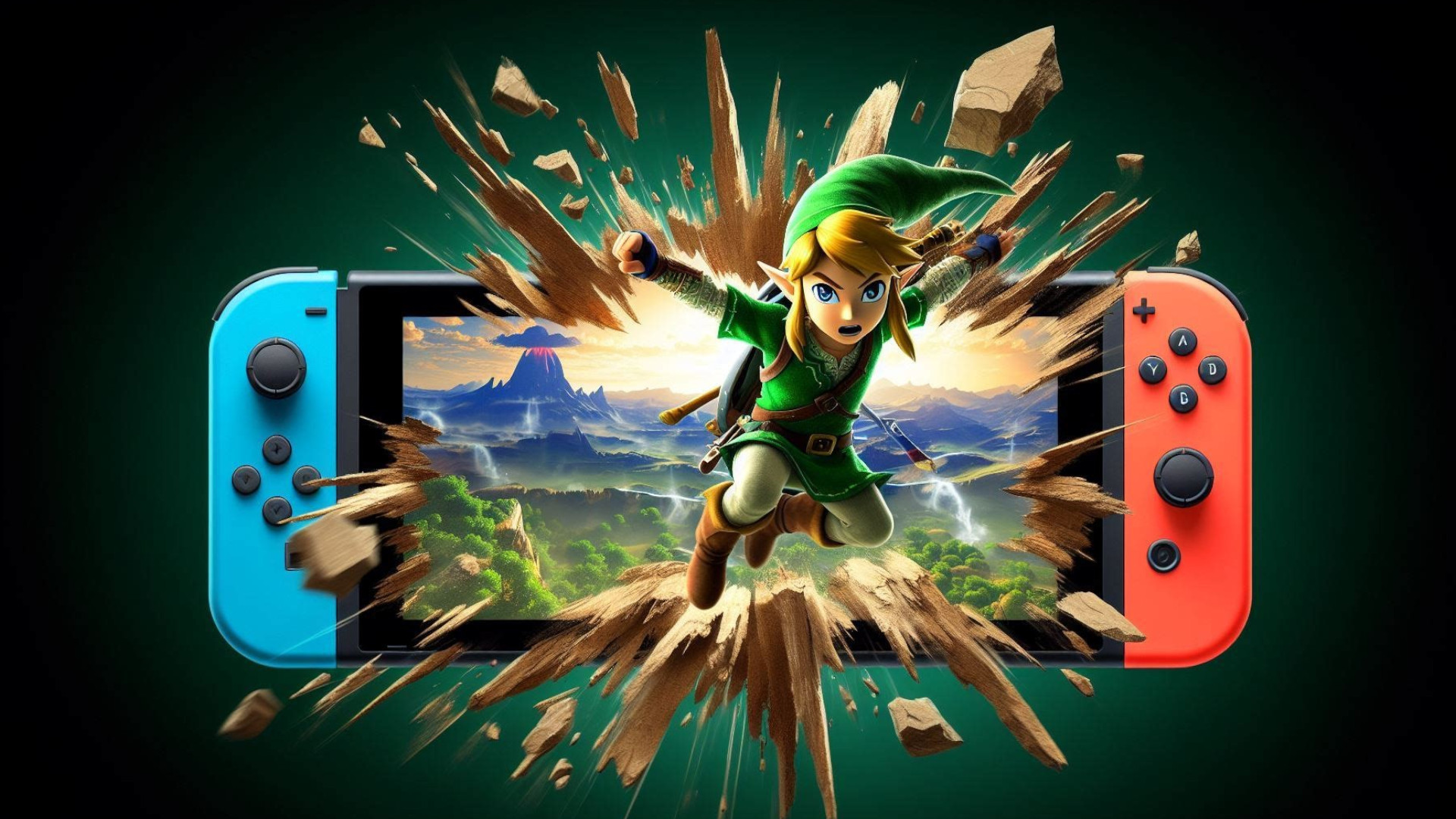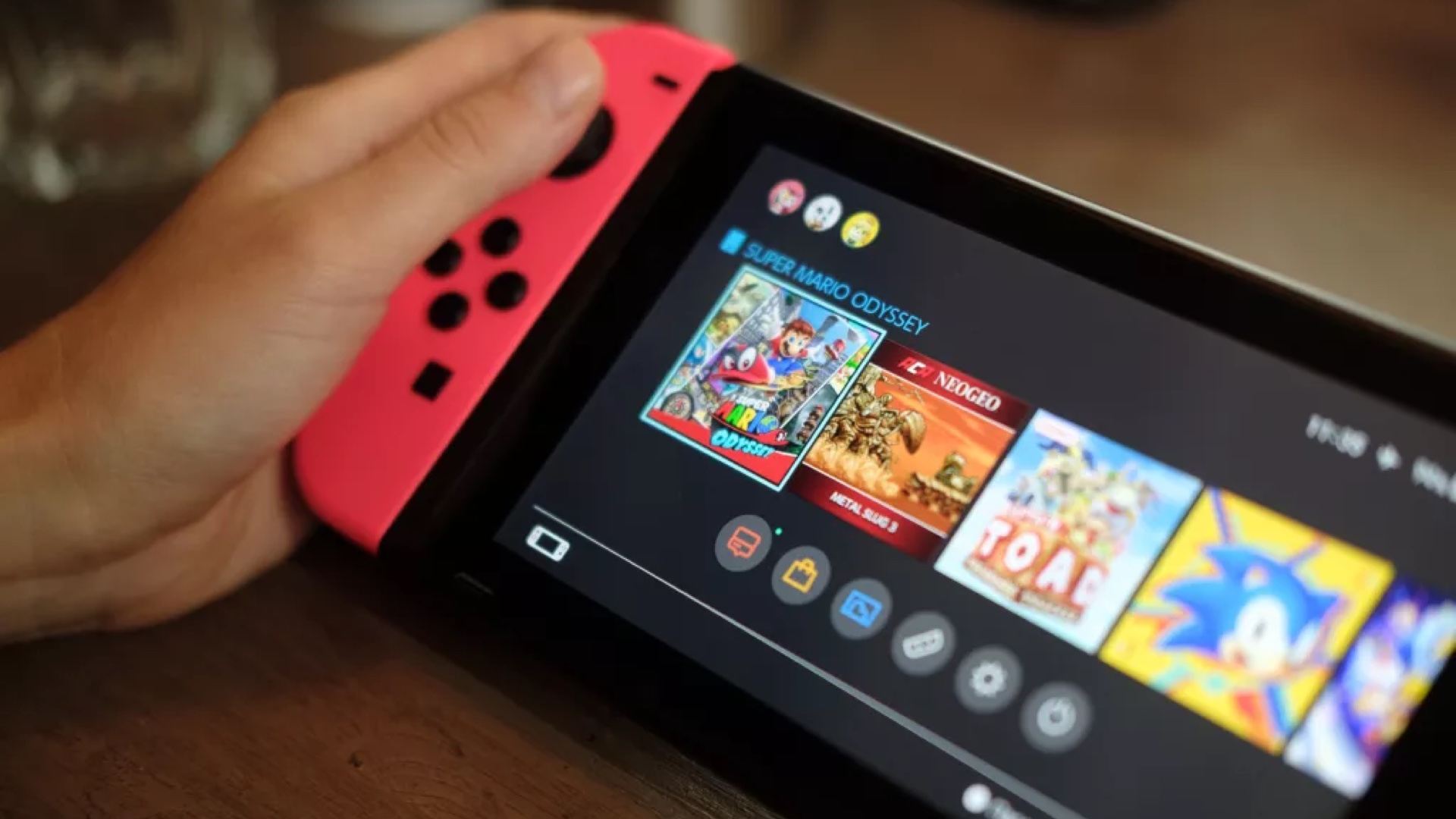Nintendo should be more like Xbox if it wants to solve its 'piracy' problem
Less legal fees, more gamers pleased

Sign up to receive The Snapshot, a free special dispatch from Laptop Mag, in your inbox.
You are now subscribed
Your newsletter sign-up was successful
Nintendo is arguably the best at what it does, and surprisingly that isn’t just making fantastic handheld consoles like the Switch. Like some cowled vigilante who studied Intellectual Property Law instead of Krav Maga, Nintendo is always lurking in the shadows of modding communities and ROM sites, ready to pounce on ‘evil’ trademark infringers and ‘nefarious’ emulation enthusiasts.
The company has spent decades attempting to clean up the murky streets of the games industry, pulling manila envelopes from its utility belt and serving subpoenas with righteous accuracy. It’s not just the street-level ‘thugs’ who peddle in contraband cartridge rips that our stalwart savior heroically defends us from, but also the copycat ‘criminals’ disrespectfully handcrafting homebrew homages to our hero, too. Thankfully, there’s still room on that utility belt for a DMCA dart gun, or who knows what chaos may have ensued over the years.
And then there’s our champion’s very own rogues gallery: Popular YouTubers who dared to host modded “Super Smash Bros.” tournaments, Twitch streamers who dare to live-react to spoiler-free, hands-on reviews, and who could forget the 1989 clash of the titans that was Nintendo of America, Inc. vs. Blockbuster LLC.,? A legal battle that saw our avatar of gaming justice strike back at a rental brand for photocopying game manuals for customers to use.
Though, Nintendo would have loved it if it could have taken things further and sued for the brand letting gamers play its beloved titles without paying their fair share for the honor — something former Nintendo VP Howard Lincoln would later claim to be "Nothing less than commercial rape." Wait, what?
Eat, sleep, litigate, repeat.
Yes. That’s a thing that was actually said. It wasn’t some off-the-cuff comment, either. Instead, boldly stated to an author knowing it would be placed in print and able to be cited for the rest of time. And it’s at the culmination of all of these events that you need to borrow a phrase aimed at an entirely different type of vigilante and remind Nintendo, that you either die the hero or live long enough to become the villain.
The latest in Nintendo's long history of litigation is a lawsuit filed against Tropic Haze LLC, the maker of the Yuzu Nintendo Switch Emulator. In true, customary, Nintendo fashion, the red brand goes all out with claims that the software is “Facilitating piracy at a colossal scale” and a source of “massive intellectual property infringement of Nintendo and others.”
It’s hyperbole at its utmost (though thankfully a little more toned down than Lincoln's comments of old). Especially so, given that the emulated console in question has sold over 139 million units to date, and whose library includes two exclusive titles (“The Legend of Zelda: Tears of the Kingdom” and “Animal Crossing: New Horizons”) that have shipped over 60 million units combined. If anything, piracy isn’t Nintendo’s problem, the availability of its games is.
Sign up to receive The Snapshot, a free special dispatch from Laptop Mag, in your inbox.

Take a page out of Microsoft’s book
Microsoft has recently started the process of pulling back from console exclusivity for Xbox titles, giving the green light for games like “Sea of Thieves,” “Pentiment,” “Grounded,” and “Hi-Fi Rush” to appear on its competitor’s consoles. And I don’t see any reason why Nintendo can’t do the same. Yuzu developers themselves have noted that Tears of the Kingdom is “by far the most played game” on the emulator, posing the possibility that it’s Nintendo’s exclusives that drive interest in emulating its software.
While the Switch has a sizable library of titles to pick from, I doubt many fans are being swayed into picking up its console by games like “Space Tanks,” “KASHIDO,” or “Forklift Simulator 2024” (no offense to the developers). However, many are unlikely to pick up a Switch for one or two games alone. Leaving those who would resort to it, no other choice but to find non-conventional ways of playing these highly acclaimed titles.
It might not solve the issue of Nintendo’s older catalog being emulated (though a similar workaround could be found), but bringing Nintendo out of its isolationist shell would give gamers on other platforms (particularly PC) a legal pathway to enjoying Nintendo’s latest and greatest titles — without the red brand missing out on all of those fictitious dollars it assumes Yuzu is costing it.
Why should Nintendo spend such a large portion of its time dealing with the symptoms of its closed platform by dragging emulator creators into courtrooms and sending cease-and-desist letters to ROM sites, when it can eradicate the problem at the root and simply provide a method of playing its games on other platforms?
Outlook
Taken individually, Nintendo’s legal battles don’t seem all that bad, but step back and soak in the larger picture and you begin to see a brand whose litigious impulsions are a liability for fans and foes alike. The worst part of it all is, that it just doesn’t have to be this way.
Sure, there’s the argument to be made that if Nintendo gave up its exclusives then the interest in buying a Switch might be lost for many. However, the Nintendo Switch’s record-breaking sales aren’t just down to its first-party titles, but also due to its portability and versatility.
At present, the Switch is still the most accessible and best handheld gaming device on the market, and that would remain a key selling point for Nintendo (until Xbox handheld or PlayStation handheld emerges from the rumor mists, anyway).
More from Laptop Mag
- Nintendo Switch 2 rumors
- Nintendo Switch OLED review: A worthy mid-cycle upgrade
- Top 5 Switch games announced at Nintendo Direct Partner Showcase 2024

Rael Hornby, potentially influenced by far too many LucasArts titles at an early age, once thought he’d grow up to be a mighty pirate. However, after several interventions with close friends and family members, you’re now much more likely to see his name attached to the bylines of tech articles. While not maintaining a double life as an aspiring writer by day and indie game dev by night, you’ll find him sat in a corner somewhere muttering to himself about microtransactions or hunting down promising indie games on Twitter.
